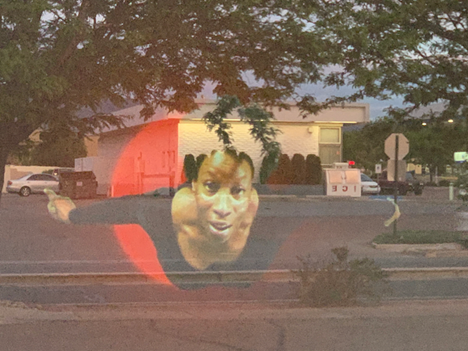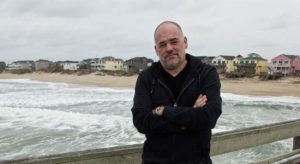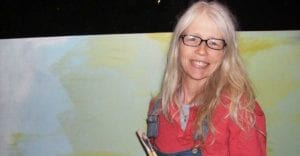 Lately I’ve been thinking a lot about thrillers. About why recently I’ve been reading them compulsively at all hours of the day and night. Maybe the subject for a new book? I’m thinking about that. In the meantime I devour them at a great rate.
Lately I’ve been thinking a lot about thrillers. About why recently I’ve been reading them compulsively at all hours of the day and night. Maybe the subject for a new book? I’m thinking about that. In the meantime I devour them at a great rate.
Near the top of the list are the Jack Reacher thrillers by Lee Child. No, I haven’t seen the movies. The books are what I like because of their superlative style. You can’t fool a style Nazi like me. The sentences in these novels have been worked over, thought through, adjusted, changed forward and backward until you can’t pound a nail into a single one of them.
That’s writing, in my opinion.
Other aspects of the Reacher novels I’m less crazy about, in particular the I-make-the-rules maverick vigilantism that gives the hero the claim to be judge, jury, and executioner of his foes. I don’t mind violence and murder in thrillers—and have given a lot of thought to the difference between violence on the page or screen versus violence in real life—but I do mind this. Historically there has been too much crossover of this so-called all-American rugged individualism into horrible life situations for me to buy into it in fiction, however imaginary.
Lee Child is British, however. As was another thriller writer and proponent of the justice-outside-the-law ideology, Raymond Chandler. But both set their novels in America and each created his own archetypically American hero.
I was mulling all this over in my head the other day when I came across a remarkable book, Andy Martin’s Reacher Said Nothing: Lee Child and the Making of Make Me (Bantam, 2015). Martin, himself a Brit and a Cambridge academic (and a Lee Child fan, needless to say), proposed that he observe Child’s writing process for a new Jack Reacher novel starting day 1 (September 1, 2013) right through to its completion, as contracted by his publishers, the following April. Martin would stay in the same room as the author every single day.
Amazingly, Child agreed. He had no objections to a stranger literally looking over his shoulder for six months while he wrote. As the odd journey begins, we quickly see a playful, bantering relationship develop between these two characters. Over the course of it I came to be very fond of them both. Out of Martin’s fascinating account—which includes a lot of Camel smoking, coffee drinking, and consumption of Sugar Smacks, with occasional breaks for literary tours and trips to Bermuda—emerged two big truths about the creative process.
These are, I believe, overlooked truths, which is why I wanted to make them the subject of this blog. They are overlooked because writers less honest than Lee Child (named James Grant in his previous life) don’t often fess up to them.
Here they are:
1. A fair number of fiction writers start out with no plot and little (or no) idea of what is going to happen. Contrary to writing manual received wisdom, this can be a very good thing.
2. Because the writer is making up the story one sentence at a time, the interesting consequence is that every next sentence becomes critical. It bears all the weight of the gestating story to come. Each new sentence is becomes the sole rudder guiding the story. Martin recounts Child’s obsessive working and reworking of each sentence in his opening until finally a tiny door opens—to the sentence after that one. And the one after that.
Not every writer works this way. As Child admits, there are those who cover whole walls with plot flowcharts, character profiles, and the like, and this kind of preparation works for them. I am not one of these writers, nor, I suspect, are a good many of my colleagues. But we don’t admit to our cluelessness because it tends to sound, well, clueless. No storyline carefully laid out in advance? No master plan? The amateur’s invitation to disaster!
But too many times I’ve seen my students kill their stories stone dead by sticking to a plot outline that their characters had long since outgrown on the page. Get bored because their well-laid plans stifled any chance of spontaneous discovery.
You wouldn’t think the same was true for nonfiction, especially academic writing, where a writer is expected to present material in a logical, well-reasoned manner. But it is. Even as I’ve learned not to nail too much down in my fiction, I’m still learning my lesson in my scholarly writing. I’ve found the earnest chapter outlines I provide to foundations for research funding have turned into iron corsets that squeeze the life out of my burgeoning ideas. So right across the board I find myself more in sync with the English novelist Anthony Burgess’s dictum of not overplanning simply because “so many things are generated by the sheer act of writing.”
Not having a plan means Child stays completely in the moment in his writing. He is not racing to get to the next scene because he doesn’t know what that scene will be. He will only have an idea about that scene, maybe, when he gets to the end of the scene he is writing. So he agonizes over every word, changes them many times before he goes forward, until the scene he is writing right then is fully realized. The perfect realization of that scene is the seed that sprouts the next scene.
Maybe too many hours in the library also make me partial to another aspect of Child’s fiction-writing process: little, possibly no, research. “Information just sticks to him,” says Martin. Yet he has an incredible eye when it comes to filling out details, especially of physical description. Here’s an example from Without Fail:
“The land looks awfully flat,” Reacher said.
But he knew the flatness was deceptive. The low sun showed him creases and crevices and small escarpments that were nothing compared to the mountains on his left but were a long way from being flat. They were in a transition area, where the mountains shaded randomly into the high plains. The geological tumult of a million years ago rippled outward all the way to Nebraska, frozen in time, leaving enough cover to hide a walking man in a million different places.
“We need it to be totally flat,” Neagley said.
Note the beautifully calibrated rhythm and repetition in those sentences. They look as if they were easy to write. They weren’t. Research is no substitute for a truly precise imagination coupled with a great, hard-won prose style.
As the story of Make Me groped its unerring way towards a climax like a blind person deeply adjusted to lack of sight, Child was faced with the challenge of having his character plan a military-style attack on the bad guys in an isolated little town in the middle of nowhere. In the end, Martin tells us, he eliminated Reacher’s whole planning stage because he couldn’t think of one.
This reminds me of the story a writer friend told me about children in an art class asked to draw a birthday party. The little girl who couldn’t draw human figures to save her life put all her energy into producing a picture of an exquisitely detailed birthday cake—with the fingers of a hand suggestively curled around the door opening behind it.
You must go where the energy is, not where you think it ought to be. If you do that, you will always stay on target. To gather up steam to write an as yet unimagined ending, Child told Martin, he rereads the whole manuscript so far. “’It’s like climbing up the stairs of a ski jump. . . .A bit of a slog. But then you sail down, effortlessly. It launches the end.”
Lee Child finished Make Me 222 days after he started it, right under the contract wire.
He never revises his first draft. What he produces is a many-times-worked-over first draft in which every word and every sentence is perfected before he moves on.
Writing this way, for Child, is very much like living. You can only go forward one step at a time, no skipping over the hard parts to come back to later. “I don’t want to know what’s coming,” he told Martin. “But also, in a very existential way, I am doing this Walter Mitty thing all day. . . .A year from now my memory of all this will be about the same as if I had done all this. And it had all really happened.”
For better or for worse, that’s how I write, too. Inching forward blindly into the unknown. Getting surprised a lot. Getting stuck even more, then groping my way out of it. So wishing I had a road map—but I don’t! And I’m glad! After I’ve finished, it feels like everything that happened to my characters happened to me, too. All those imaginary events are embedded in me as some weird kind of real-life experience.
An alternate life, lived a moment at a time in well wrought sentences.
Photo credit: Sylvia Plachy







